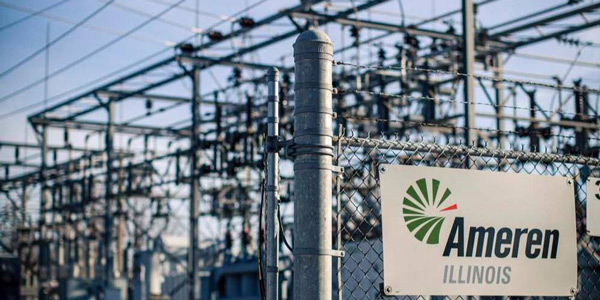By Amanda Durish Cook
Environmental and consumer activists Wednesday accused Ameren Illinois of attempting to bypass energy efficiency targets set by the state’s new clean energy law.
The Illinois Clean Jobs Coalition, with Illinois Rep. Elaine Nekritz and representatives from the Citizens Utility Board (CUB) and Natural Resources Defense Council (NRDC), held an Aug. 9 teleconference to criticize Ameren for setting low energy efficiency goals and urge state regulators to reject the utility’s plan. CUB, NRDC and the Environmental Defense Fund filed joint testimony opposing Ameren’s plan, which also attracted criticism from many others (17-0311).
According to a July report from the NRDC, both Commonwealth Edison and Ameren filed their initial four-year energy efficiency plans with the Illinois Commerce Commission, but Ameren’s plan contained lower energy efficiency goals than required by the Future Energy Jobs Act, which includes performance-based incentives that reward utilities for surpassing efficiency targets and penalize them if they fall short. (See Illinois Lawmakers Clear Nuke Subsidy.)
“It’s important to understand that everyone benefits from energy efficiency,” said CUB Executive Director Dave Kolata, who asserted that Ameren provided no evidence, as required, for not being able to meet the goals.
“In essence, they filed a bloated and inefficient plan” by claiming energy efficiency is more expensive, Kolata said. While the NRDC says ComEd’s portfolio meets the new law’s four-year target of 11.8% savings, Ameren Illinois’ plan “does not meet any of its statutory cumulative annual persisting savings targets — all of which were lower than ComEd’s — over the four-year period.”
Under the law, ComEd and Ameren are required to achieve 21.5% and 16%, respectively, in cumulative annual savings through 2030 ― figures that both utilities had to sign-off on, according to Nekritz, chief sponsor of the law.
By 2021, Ameren should meet a 9.8% cumulative persistent annual savings, but the utility is planning for 8.24% savings. If Ameren’s plan is allowed, the utility could gain $36 million in incentives while failing to abide by the law’s requirements, the groups said.
Ameren Illinois President Richard J. Mark vehemently rejected the allegation. “They state that Ameren is seeking a $36 million bonus if we achieve lower goals. This is a false statement. In the unlikely event that Ameren earned the ‘maximum bonus,’ it would amount to approximately $1.3 million in the first year of the plan and $10.1 million in total during the four-year plan.”
Mark noted that the filed plan only covers the next four years and is not an indication that the company won’t reach the 16% target by 2030.
Nekritz said Ameren should not be allowed to “exploit a loophole” and pointed out that Ameren was already given a lower standard in the law than ComEd.
“Just a short seven months later, Ameren is already backing away from their weak commitment. … Ameren broke their word,” Nekritz said. She said while Chicago and Northern Illinois will benefit from electricity savings, Central and Southern Illinois will lose out from Ameren “lowering the goalposts.”
Josh Mogerman, NRDC media director, said the law could add 7,000 jobs annually, boosting the state’s economy by $700 million per year. “Every time I go home to my parent’s in Springfield and see that old refrigerator running in the garage, I’m reminded that there are opportunities all over the state. … Come on, Ameren, don’t let down your customers,” Mogerman said.
Ameren said its plan is tailored to serve its more sparsely populated customer base. “ComEd serves 3.8 million customers within a territory spanning only 11,400 square miles, or 333 customers per square mile. Ameren Illinois serves 1.2 million electric customers in a service territory that covers 43,700 square miles, or 27.5 customers per square mile,” Mark said in a statement to RTO Insider. “There is significantly less energy saving potential in the Ameren Illinois service territory.”
Mark said that Ameren’s plan calls for $112 million in spending annually on low-income programs for the next four years — the maximum allowed under the law. “We’re focusing on assisting moderate- to low-income customers who pay for energy efficiency programs every month and deserve the opportunity to receive the benefits,” Mark said.
The ICC could decide on Ameren’s proposal as soon as early fall.





